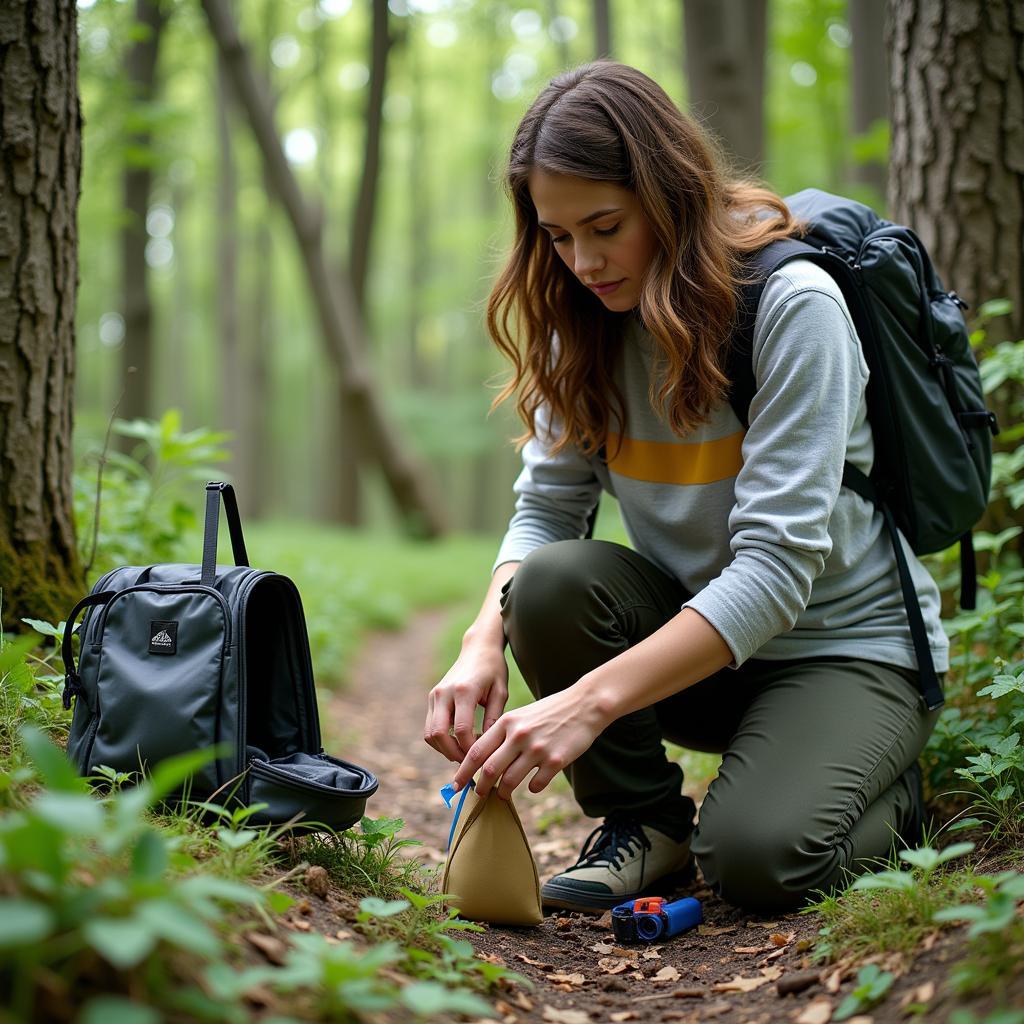Outdoor research encompasses a thrilling range of investigations conducted outside the confines of a traditional laboratory, pushing the boundaries of our understanding of the natural and supernatural world. From tracking elusive cryptids in dense forests to analyzing energy fields in ancient ruins, outdoor research offers a unique and hands-on approach to exploring the unknown. It blends scientific methodology with a touch of adventure, appealing to both the curious mind and the adventurous spirit.
Delving into the Depths of Outdoor Research
Outdoor research isn’t just about ghost hunting in graveyards. It’s a multifaceted field encompassing various disciplines, from paranormal investigation to archaeological exploration and the study of unexplained natural phenomena. Whether you’re investigating a local haunting or searching for evidence of Bigfoot, meticulous preparation and a systematic approach are crucial. Choosing the right location is paramount. Is it a site known for paranormal activity, an unexplored wilderness area, or a historical location with untold stories? Identifying your research goals will guide your methods and ensure a focused investigation.
Essential Tools and Techniques for Outdoor Research
What equipment do you need to embark on your outdoor research adventure? A basic kit might include a high-quality camera for capturing visual evidence, audio recorders for picking up EVPs (Electronic Voice Phenomena), EMF meters to detect electromagnetic fluctuations, and GPS devices for accurate location tracking. Remember, thorough documentation is key. Detailed field notes, photographs, and audio recordings provide valuable data for later analysis and help to build a compelling case for your findings.
Don’t underestimate the importance of local knowledge. Talking to residents, historians, or park rangers can provide invaluable insights into the history of a location, including any unusual occurrences or local legends. Their perspectives can enrich your research and offer potential leads you might have otherwise missed. Furthermore, safety should always be a priority. Researching in remote areas or investigating potentially dangerous phenomena requires careful planning and adherence to safety protocols. Always work in teams, inform someone of your plans, and carry necessary safety equipment.
Navigating the Challenges of Outdoor Research
Outdoor research presents unique challenges. Environmental factors, such as weather conditions and terrain, can significantly impact your investigation. Be prepared to adapt to changing circumstances and prioritize your safety. Moreover, analyzing evidence gathered in the field can be complex. Distinguishing genuine anomalies from natural phenomena or equipment malfunctions requires critical thinking and meticulous analysis.
Ethical Considerations in Outdoor Research
Remember, ethical considerations are paramount in outdoor research. Respect for the environment and any potential inhabitants, whether human or otherwise, is essential. Avoid disturbing natural habitats or historical sites, and always obtain necessary permissions before conducting research on private property.
Conclusion: Embracing the Adventure of Outdoor Research
Outdoor research offers an exciting avenue for exploring the mysteries of our world, from the scientific to the supernatural. By combining meticulous planning, appropriate equipment, and a respectful approach, you can unlock the secrets hidden within the natural world and beyond. Remember to carefully document your findings and always prioritize safety. So, equip yourself, embrace the adventure, and let the outdoor research begin!
FAQ
-
What is outdoor research?
Outdoor research encompasses investigations conducted outside a lab, exploring natural and supernatural phenomena. -
What equipment is needed for outdoor research?
Essential tools include cameras, audio recorders, EMF meters, and GPS devices. -
What are some safety tips for outdoor research?
Always work in teams, inform someone of your plans, and carry necessary safety equipment. -
How can I analyze evidence from outdoor research?
Distinguishing genuine anomalies requires critical thinking and comparing evidence with known phenomena. -
What are some ethical considerations for outdoor research?
Respect the environment, obtain permissions, and avoid disturbing natural habitats or historical sites.
 Respectful Outdoor Research Practices: Researcher Leaving No Trace
Respectful Outdoor Research Practices: Researcher Leaving No Trace
Need help with your outdoor research? Contact us at Phone Number: 0904826292, Email: [email protected] or visit us at No. 31, Alley 142/7, P. Phú Viên, Bồ Đề, Long Biên, Hà Nội, Việt Nam. We have a 24/7 customer service team.
Interested in learning more about specific types of outdoor research? Check out our articles on paranormal investigations, archaeological digs, and unexplained natural phenomena. We offer a wealth of information and resources to help you in your quest for knowledge.